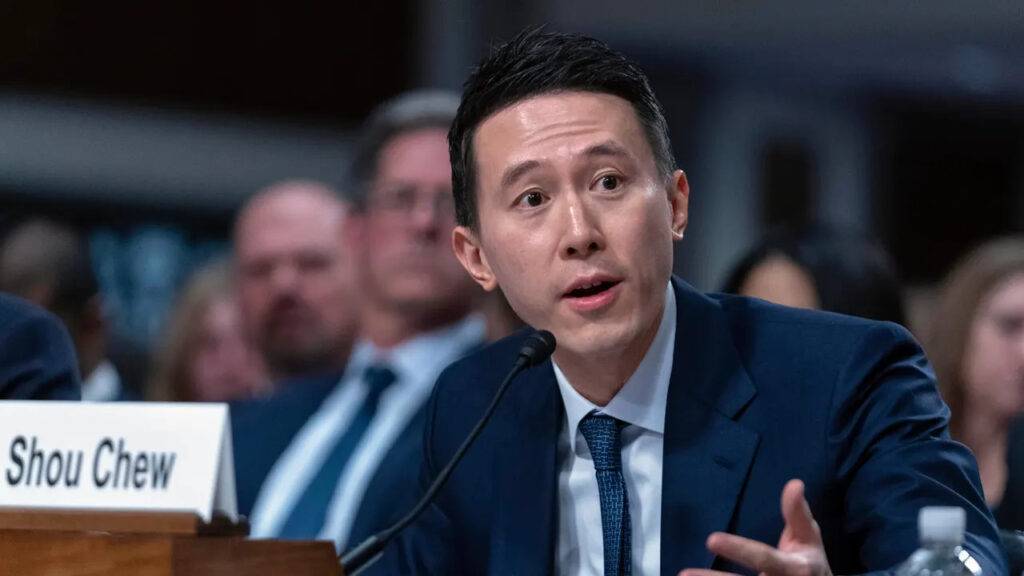while the Senate hearing aimed at addressing critical issues of child safety online, it was not immune to veering off course. Sen.

Tom Cotton’s line of questioning, particularly towards TikTok CEO Shou Zi Chew, has ignited a debate about the appropriateness of delving into unrelated matters and the potential impact on the public perception of foreign executives in the tech industry.
Tom Cotton Defends TikTok CEO Shou Zi Chew
In a Senate hearing that primarily focused on child safety concerns related to major tech platforms, the spotlight unexpectedly shifted towards TikTok and its CEO, Shou Zi Chew. The hearing, featuring CEOs of prominent companies like X, Meta, Snap, TikTok, and Discord, took an unexpected turn, delving into the ownership of TikTok by the Chinese company ByteDance.
TikTok Under Scrutiny
While the initial emphasis of the hearing was on child safety, the discussions took a detour, raising concerns about TikTok’s data storage policies and potential influence from the Chinese government over its content moderation. Even though attempts to ban TikTok last year did not materialize, the apprehensions regarding its operations persist.
Lawmakers, including Sen. Tom Cotton (R-Ark.), probed Chew on various issues, including an update on Project Texas, TikTok’s ongoing data security initiative. However, the inquiry also deviated into questioning TikTok’s “un-American” origins, culminating in Sen. Cotton pressing Chew aggressively on his citizenship.
Tom Cotton and Shou Zi Chew At a Senate Hearing
Sen. Cotton’s line of questioning took a turn that some, including The Washington Post’s Drew Harwell, described as “McCarthy-esque.” The focus shifted from child safety concerns to an attempt to question Chew’s allegiance and connections to the Chinese Communist Party.
Cotton, seemingly fixated on Chew’s citizenship, demanded to know details about Chew’s passport and whether he had applied for citizenship in China or the United States.
“You often say that you live in Singapore. Have you ever been a member of the Chinese Communist Party?” Cotton interrogated, with Chew responding firmly, “Senator! I’m Singaporean! No.”
Chew’s connection to China was extensively scrutinized during a previous appearance before Congress, making Cotton’s repetitive questioning perplexing and seemingly unrelated to the topic at hand. The controversy surrounding TikTok often involves discussions about data security and potential government influence, but Cotton’s line of questioning appeared designed to play on Chew’s foreignness.
Cotton’s approach drew criticism for its apparent lack of relevance to the main theme of child safety. The questions about Chew’s citizenship and ties to the Chinese Communist Party failed to establish a clear connection to the concerns raised during the hearing.
Critics argue that this line of questioning appeared more focused on exploiting Chew’s foreign background rather than addressing the substantive issues surrounding TikTok.
The Larger Context
Comparisons were drawn to other tech giants like Apple, which has faced criticism for its relationship with the Chinese government. However, the distinction lies in the fact that inquiries into Apple’s connections have not been framed around baseless suspicions of communism.
The controversy surrounding Chew’s citizenship appears to be an attempt to create a narrative that may not be directly related to the concerns about TikTok’s operations.





